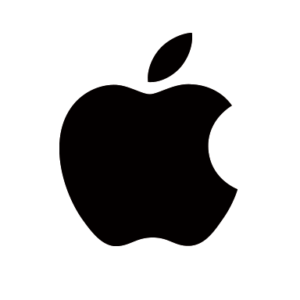ICO Orders WhatsApp Not to Share Data with Facebook; Apple Reveals More IDFA Details
by Grace Dillon on 28th Jan 2021 in News


In today's ExchangeWire news digest: the ICO informs parliament that it has ordered WhatsApp not to share any user data with Facebook; Apple reveals more details about when the changes to their IDFA will take place; and Facebook News arrives hits the UK.
UK watchdog orders WhatsApp not to share data with Facebook
The Information Commissioner’s Office (ICO) has written to WhatsApp ordering the instant messaging service not to pass any user data onto parent firm Facebook. The move comes amidst a mass exodus from the app, with millions ditching WhatsApp after their controversial new privacy policy sparked concerns over the use of personal information.
The information commissioner, Elizabeth Denham, informed a parliamentary committee on Tuesday (26th February) that in 2017 WhatsApp had promised to refrain from sharing any user data with Facebook until it could successfully prove that doing so would not be a violation of GDPR. However, since this agreement had been enforced by the Irish data protection authority, the ICO will now be responsible for making sure that the promise is kept in a post-Brexit UK.
Explaining the importance of ensuring that WhatsApp keep their word, Denham said “Users expect companies to maintain their trust and not to suddenly change the contract that they have with the users.” The ICO chief described the backlash against the platform as “an example of users being concerned about the trustworthiness and the sustainability of the promises made to [them].”
Whilst Denham’s stance on WhatsApp may be encouraging, her office’s standing with Facebook, with whom it made a private agreement over the investigation of the Cambridge Analytica scandal, may cause some to feel less confident.
Apple reveals when IDFA changes will take effect
 Apple has revealed that the privacy changes to their Identifier for Advertisers (IDFA) will come into effect alongside the company’s next beta software release. The announcement, made yesterday (27th January), is in line with the firm’s previous claims that the changes would take place in “early 2021”
Apple has revealed that the privacy changes to their Identifier for Advertisers (IDFA) will come into effect alongside the company’s next beta software release. The announcement, made yesterday (27th January), is in line with the firm’s previous claims that the changes would take place in “early 2021”
The update, which will see the implementation of what Apple dubs an App Tracking Transparency (ATT) framework, will give users more control over who they share their data with. ATT will require every app to explicitly ask iOS users for permission to collect their information, and to outline what data would be collected and what it would be used for.
The update corresponds with Apple’s culture of privacy as sacrosanct, and reflects the heightened pressure tech firms are facing from regulators to make users aware of how their information is being used. Craig Federighi, Apple’s senior vice president of software engineering, said that ATT is part of the company’s aim “to create technology that keeps people’s information safe and protected. We believe privacy is a fundamental human right, and our teams work every day to embed it in everything we make.”
Naturally, the update is set to make it more difficult to target app users with specific advertising. Advertisers have scrambled to prepare for the change since it was announced last year, with some yet to find a way to adapt.
Facebook’s News launches in the UK
 The UK has become the first country besides the US to see the launch of Facebook’s News tab. The feature, which made its European debut on Tuesday (26th January), will see Facebook pay some of the nation’s larger media outlets to publish their content.
The UK has become the first country besides the US to see the launch of Facebook’s News tab. The feature, which made its European debut on Tuesday (26th January), will see Facebook pay some of the nation’s larger media outlets to publish their content.
Whilst the social media giant refused to get specific about how much these licensing agreements could cost, a spokesperson revealed that Facebook plans to make “substantial” investments in the feature over the coming years. According to reports, most agreements will likely be formed with publishers whose content is not already freely available on Facebook, such as those who use paywalls.
The firm has also revealed some of the publishers it has reached agreements with, which include the Financial Times, Channel 4 News, and DC Thomson. They join the outlets Facebook had already inked deals with in December, amongst whom are The Guardian, The Economist, and The Independent.
News’ successful launch in the UK contrasts sharply with the ongoing battle between Facebook and the Australian government over publisher remuneration. Whilst the feature’s arrival in the UK may somewhat assuage the platform’s fears variants of the proposed Bargaining Code will appear in other markets, it remains to be seen whether it will convince governments and regulators to let Facebook keep control of their commercial relationships with publishers.
AppleContentDataFacebookPublisher








Follow ExchangeWire